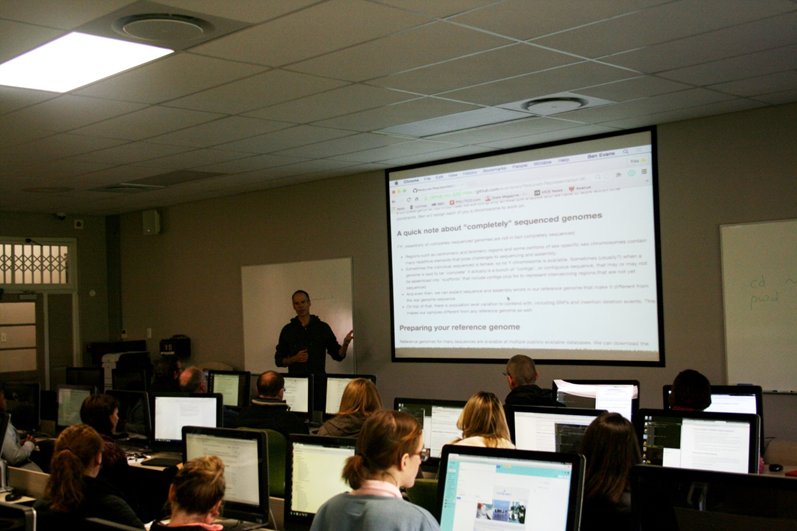Next generation sequencing is set to revolutionise the way in which we approach many fields of genetics, including population genetics. Prof Ben Evans (visiting C·I·B fellow and Associate Professor at McMaster University, Canada) recently presented a hands-on workshop for those wishing to gain a basic understanding of reduced representation genome sequencing, how it can be used to address research questions, and what relevant bioinformatics tools are available to facilitate analysis.
The workshop, which was held on 25 June 2015, was split into a morning session which gave an introduction to reduced representation genome sequencing (e.g. RADseq, GBS), exploring examples from Ben’s research that utilize this datatype. The afternoon session was interactive, and looked at (a) basic Unix use, including file manipulation and text editing with Emacs, (b) quality scores, file types, and de-multiplexing of multiplexed samples, (c) aligning reduced representation data to a reference genome, (d) assembling reduced representation data without a reference genome, (e) genotype calling, and (f) applications to phylogenomics, population genomics, and linkage analysis.
The workshop was attended by 20 students and staff members from several faculties at Stellenbosch University. Ben’s down to earth presentation of complex data manipulation issues provided the attendees with a clear insight into reduced representation genome sequencing.
“There are a host of ways in which such data can be used to study the nature of invasive populations.” C·I·B Core Team Member and course attendant, John Measey said, “it’s really encouraging to see so much interest in this technique from such disparate disciplines, and making these connections as we learn, is of prime importance.”
If you missed out on the workshop but wish to catch up on what was covered, contact Ben Evans at evansb@mcmaster.ca or visit the course website: https://github.com/evansbenj/Reduced-Representation-Workshop/blob/master/1_README.md

